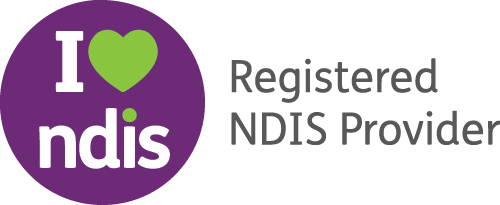NDIS Foundational Supports: What They Are, Who They Affect, and What Comes Next
Following the recommendations of the 2023 NDIS Review, the scheme is preparing for some of the most significant changes since its inception. One of the most notable is the introduction of foundational supports, a new layer of services designed to extend support to people who may not meet full NDIS eligibility but still need meaningful assistance in daily life. These supports are part of broader NDIS reforms aiming to strengthen early intervention and community-based support.
At Hand in Hand, we specialise in support coordination for people with psychosocial and complex disabilities across Melbourne. As reforms unfold, we are working closely with participants and families to ensure no one is left behind.
What Are Foundational Supports?
Foundational supports are being introduced as part of NDIS reform. While they sit outside individualised NDIS plans, they are still part of the broader NDIS ecosystem and aim to serve people who need support but don’t meet full scheme eligibility.
They aim to:
- Offer early intervention before issues escalate
- Address gaps in mainstream services
- Support people who don’t qualify for NDIS plans
- Reduce reliance on crisis services or long-term intensive supports
These supports may include:
- Mental health and wellbeing programs
- Peer and community-based services
- Carer support and training
- Connection to local resources and programs (note: support coordination has not been confirmed as a foundational support at this stage)
The goal is to create a universal safety net for people whose needs may not be considered "permanent and significant" but are still critical.
Why It Matters for People with Psychosocial and Complex Needs
For people with psychosocial disabilities such as those managing schizophrenia, PTSD, bipolar disorder or complex trauma, challenges are often episodic, fluctuating, and multifaceted. Many also experience barriers in housing, employment, social connections, and daily functioning.
Historically, these individuals have struggled to:
- Meet the eligibility criteria for the NDIS, or
- Maintain funding due to changing assessments and inconsistent decision-making
Foundational supports may offer new pathways for people who have been excluded from the scheme or struggled to maintain plans. However, they also raise important concerns about adequacy, access, and whether they will meet the needs of individuals with complex conditions.
- Will people lose their current NDIS funding?
- Will foundational supports meet their real-world needs?
- Will these supports be consistent, recovery-oriented, and easily accessible?
Where Are We Now? Understanding the NDIS Reforms
You may have heard that the NDIS is changing, and you’re not alone if you’re unsure what that means. The good news is: the significant changes aren’t happening overnight, and you don’t need to navigate them on your own.
What’s Changing?
In late 2023, the government completed a major review of the NDIS. One of the key recommendations was to introduce “foundational supports”, a new type of support for individuals who may not require a full NDIS plan but still need assistance in their daily lives.
This includes:
- Early support for mental health challenges
- Help for carers and families
- More access to community and peer-based services
Are These Changes Happening Now?
Not yet, but design and consultation are currently underway, with trials expected in late 2025 and full rollout from mid-2026.
- The government is currently designing how foundational supports will work
- Trial programs may begin in late 2025
- Full rollout is planned from mid-2026 and beyond
- No one is being removed from the NDIS right now because of this
Why It Matters for People with Complex Needs
This is one of the biggest concerns. People with complex mental health needs often rely on specialist, long-term supports through the NDIS. There’s a risk that some participants could be moved out of funded support and into more generalised community services, which may not be the right fit for their needs.
That’s why, at Hand in Hand Support Coordination, we’re:
- Staying informed about the reforms
- Helping our participants prepare for any future changes
- Ensuring that your voice is heard and your support needs are not overlooked
What Should You Do Now?
If you're currently receiving support coordination from us:
- You don’t need to make any changes right now
- If your plan is due for review, we’ll work with you to ensure it reflects your ongoing needs
- If you’re unsure about how these reforms could affect your NDIS plan, talk to your support coordinator
We’re here to support you, our participants, through every step of the process with clarity, confidence, and compassion.
The Risk: More Gaps, Not Fewer
While foundational supports are designed to bridge the service gap, there is a risk that they could create new problems, particularly for people with complex needs.
Consider someone currently supported under the NDIS. Their plan might include:
- Support coordination
- Psychosocial recovery coaching
- Assistance with daily living
- Community access and social participation
If participants are transitioned away from funded NDIS plans during reviews and instead offered foundational supports, they may lose access to tailored services that are essential to their wellbeing and recovery. This is why eligibility reviews and support advocacy are so critical.
For people who rely on long-term, coordinated care, this change could leave them without the support they need to thrive or even to stay safe.
How Hand in Hand Support Coordination Is Responding
At Hand in Hand Support Coordination, we work closely with participants and their families. We’re preparing for these changes by:
Proactive Support Planning
We’re already engaging with participants to understand how upcoming changes may affect their plans, and preparing strategies to maintain continuity of care.
Navigation and Advocacy
We’re helping individuals understand their rights and ensuring that those who should remain on the NDIS aren’t inappropriately transitioned to lower levels of support.
Building Strong Local Networks
Foundational supports will depend on high-quality community partnerships. We are mapping out reliable local services across Melbourne to ensure our participants stay connected.
Specialised Support for Psychosocial Disability
Our experience with trauma-informed practice and complex needs means we understand the nuances of recovery and the importance of consistency. We’re advocating for foundational supports to be built on these principles, not just cost-efficiency.
What Comes Next?
The design and rollout of foundational supports are still under development, and implementation is expected to occur over the coming years. But for many participants, the uncertainty has already begun.
At Hand in Hand Support Coordination, we are committed to supporting our community through this period of reform. We will continue to stay informed, educate participants, and advocate for support systems that are fair, inclusive, and person-centred.
Need Specialist Support Coordination in Melbourne?
While no participants are currently being removed from the NDIS due to these changes, it's important to be prepared and informed ahead of plan reviews.
If you're an NDIS participant living with complex or psychosocial disability, and you need expert help navigating your plan or upcoming reforms, Hand in Hand Support Coordination is here to support you.
We work with people across Melbourne who require specialist support coordination, particularly those with high or complex needs who need someone in their corner.
Contact us today to:
- Review your current plan
- Prepare for upcoming changes to the NDIS
- Ensure your supports continue to meet your goals and needs
At Hand in Hand, we walk
with you, not just beside you, every step of the way.

We hope this blog was useful.
Hand in Hand Support Coordination specialises in personalised NDIS Support Coordination for participants with complex mental health and physical disabilities across Melbourne and Victoria, focusing on Level 2 and 3 support to create tailored support that aligns with goals and budget.




